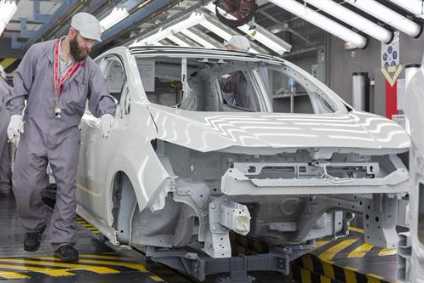In widely reported remarks, Nissan COO Ashwani Gupta has reiterated the importance of UK-EU free trade to the future of its Sunderland manufacturing plant.
These latest remarks come as no great surprise and restate Nissan’s long held position that it’s European business model would have to be reviewed if 10% tariffs were levied on cars shipped from Sunderland for sale in EU markets. Nissan certainly wants to carry on making cars at Sunderland, but the competitive position is undoubtedly altered if new tariffs are applied.
However, the situation is a little more complex than it appears.
Clearly Nissan’s preferred outcome is that trading arrangements between the EU and UK stay as close as possible to how they currently are. That said, the net competitive position of the plant is also determined by other factors and Nissan does not want to walk away from many years and huge sums of sunk investment in plant and equipment, as well as a highly trained and cost-effective workforce at Britain’s biggest automotive plant.
Nissan appears to be ramping up pressure on the UK government to avoid a no-deal outcome.
As the UK-EU negotiations on a permanent relationship make difficult progress ahead of the end of the transition period on 31st December, Nissan appears to be ramping up pressure on the UK government to avoid a no-deal outcome. A no-deal resort to default WTO rules next year would likely entail new trade tariffs.
Like all companies though, Nissan will assess risks and examine different scenarios – of which new potential tariffs are but one element. Indeed, the assembly of more models from imported kits is a way to potentially avoid tariffs applying to finished vehicles sold in the UK market.
Meanwhile, the possibility of some spare capacity at Sunderland being used for the manufacture of suitable alliance partner Renault models may make very good business sense. However, that is also predicated on an understanding of what trade tariffs may apply from next year.
The possibility of shifting Renault production to Sunderland is further complicated by French domestic political sensitivities over plant investments. How committed will Renault be to investing in a UK plant when there is pressure from the French government – a key Renault stakeholder – to invest as much as possible at home? An EUR5 billion loan guarantee from Paris for Renault has now been signed off and perhaps speaks louder than words.
Nissan wants to continue making cars at Sunderland, but some considerable uncertainties remain, in terms of the plant’s future activity and overall level of capacity utilisation.
While the unprecedented COVID-19 crisis has the auto industry across the world transfixed like never before – and rightly so – other areas of strategic concern for the sector (for example, Brexit, global trade tensions, tighter CO2 targets, the need for costly investment in advanced technologies, adverse demand cycles, fragile supply chains, volatile raw material prices, transport sector business model disruptors – it is a long list and that’s not exhaustive) have not entirely gone away.







